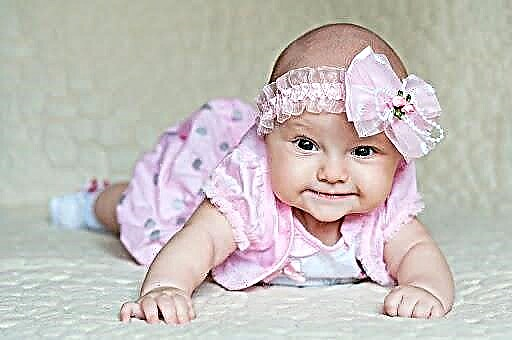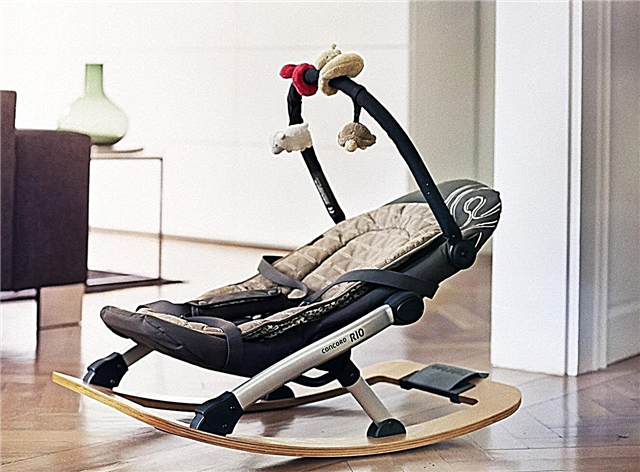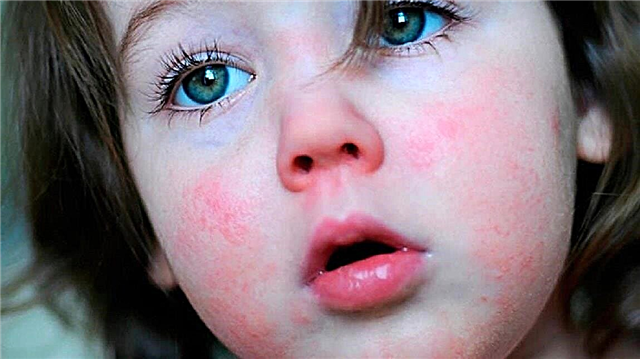
Children are curious and restless, and therefore no one can completely avoid injuries, falls and bruises. In the process of learning about the world, babies fall quite often. But if a fall on the bottom or back does not cause panic attacks in the parents, then the situation changes dramatically if the child hits his head. The authoritative pediatrician, author of numerous books and articles on children's health, Yevgeny Komarovsky, explains why such falls are dangerous and when you need to start worrying.

Features of children's physiology
The head of a small child is designed in such a way that it is relatively large in comparison with the rest of the body, so babies most often, losing balance, fall on the head. But there is also a positive: the child's brain is reliably protected from injury in the event of a fall. If a small child fell off the couch upside down, then his parents received the greatest trauma (of a psychological nature), and not himself. The bones of the infant's skull are very soft, and the “fontanelle” and dynamic “seams” between the bones of the skull provide them with mobility. The larger the fontanelle, says Yevgeny Komarovsky, the less likely it is to get injured when falling upside down. In addition, nature has come up with another shock-absorbing mechanism - a large amount of cerebrospinal fluid.

If a child is 6-7 months old, when he becomes more mobile, he turned over unsuccessfully and fell from the sofa or changing table, you should not immediately panic. The kid, of course, will scream heart-rendingly. But parents should understand that he cries not from terrible pain, but more from fear caused by a sharp movement in space. If after half an hour the baby smiles, walks and leads his usual way of life, nothing in his behavior has changed, then there is no reason for alarm, medical examination, Komarovsky claims.
Most often, children under one year old begin to beat their heads when they master the first steps. This usually happens after 8-9 months. That is why it is important that the baby first learns to crawl, and only then to stand and walk.

Of course, the child who banged his head requires more careful attention from the parent. It is advisable to provide the baby with peace, not to let him run a lot, play active games, and shout loudly. The first day will show if the baby has an injury... To do this, parents need to know the symptoms of head injuries like twice two.
Traumatic brain injury
It does not matter the age and gender of the child, the height from which he fell head down, the size of the bruise or bump on the forehead, as well as the presence or absence of abrasions and blood. All mums and dads should know that in all situations involving a head injury, a child needs qualified medical care.
The presence of an injury can be suspected if the child has a clouding of consciousness, loss of consciousness of any duration and frequency. Observation is very important, as parents who know the characteristics of their child's behavior will be able to notice changes in his behavior in time. Any inappropriate changes may indicate a possible head injury.

If the child stops falling asleep normally, or, conversely, sleeps for an unusually long time, he has a headache, and it does not go away even after an hour and a half after falling, you should seek qualified medical help.
Vomiting is a common symptom of head injury, especially if it is repeated. The child may become shaky and unsure of gait, dizziness, convulsions may be observed, impaired coordination of movements, weakness of arms, legs, inability to move one or two paired limbs at once. In all these cases, you should definitely call an "ambulance".
Discharge from the nose and ears, whether bloody, bloody, or transparent and colorless, is a definite reason to assume an injury.
Also, symptoms of trauma can be various disorders of the functioning of the sensory organs. (hearing loss, visual impairment, complete, or maybe partial, lack of response to tactile contact). The child may begin to complain that he is cold or hot. Evgeny Komarovsky advises paying attention to each of these symptoms.
Concussion
This is a fairly simple traumatic brain injury, in which a child may lose consciousness, but such a loss will be of a short-term nature (no more than 5 minutes), nausea, dizziness are possible... The brain is not damaged, but a concussion temporarily disrupts some of the functions of brain cells. Dr. Komarovsky claims that this is the easiest consequence of falling on the head, because after a couple of days the brain functions return to normal and the child's condition returns to normal.

Brain contusion
This is an injury in which the membranes of the brain are directly damaged, as well as its deeper structures with the formation of a hematoma and the occurrence of edema. How long the state of unconsciousness lasts affects the degree of injury, it can be mild, moderate and severe. In the first degree, the symptoms are similar to a concussion, only the child's unconsciousness can last more than 5 minutes. The average severity of the injury is characterized by the duration of fainting from 10-15 minutes to an hour or more. In a severe form, consciousness may be absent for several hours or several weeks.

Compression of the brain
This is an extremely dangerous condition when, as a result of a head injury, compression occurs inside the skull. With such a pathology, vomiting occurs, which has a protracted and repeated character. The periods of loss of consciousness are replaced by the so-called "light" periods, when the child behaves normally, showing no signs of a brain disorder. Such periods can last up to 48 hours.
First aid
If the child fell, hit his head and there was a dissection of the skin or hair, while the child did not lose consciousness. and in a day there is no sign of injury, there is no need to take him to the doctor, says Yevgeny Komarovsky. It is enough to treat the wound with an antiseptic, apply ice to the site of the external injury. With an extensive wound (more than 7 mm), you should go to the emergency room, the child will be stitched several times, and this treatment can be considered complete.

If the wound is open (with an open craniocerebral injury), you should never press on it to stop bleeding. Mom should cover the wound around the edges with ice until the doctor arrives.
If the child has fallen, hit the back of his head or forehead on the floor, and the parents immediately or several hours later discovered signs of trauma in the child, the child should be put to bed and call the hospital. It is the doctors' task to determine the type of injury, its nature and severity.

If the head injury is severe, the child is unconscious, he has no breathing, the child must be given resuscitation measures before the arrival of the "ambulance". The child should be put on his back, his head should be fixed, cardiopulmonary resuscitation should be performed, after the baby comes to his senses, he should not be allowed to move, drink and talk until the doctors arrive.
Effects
With craniocerebral trauma, vital centers and parts of the brain are affected. If the child is not provided with timely medical care, the changes that are caused by bruising or compression can be irreversible. Severe injury can be fatal.

Doctor Komarovsky's advice
If a child hit his head while away from his parents, for example, in a health summer camp or boarding school, the parents, for objective reasons, cannot observe the behavior and condition of the child for 24 hours after the blow. In this situation, you should be sensitive to the fact that doctors and educators of the childcare institution are "reinsured" and immediately send your child to the hospital. According to Komarovsky, in 99% of cases, such hospitalization is required not in order to treat the child, but in order to have someone to watch over him.
If after a while after hitting the head or on the head, the child, having cried, calmed down and fell asleep, Komarovsky does not advise him to interfere - let him sleep.
However, it is very important for mom to remember that the child needs to be woken up every three hours and assess his condition, for example, by asking a simple question (how many fingers he sees, his name, etc.). This will help to understand if there are any changes in the child's mind.
If you cannot wake up or the answers are unintelligible, you should immediately call a doctor.

There is no specific prevention of head injury. However, the task of the parents is to think through all dangerous situations as best as possible and, as far as possible, do everything possible to protect the baby.
From 8 months onwards, you cannot leave your child alone in the room while he is awake, unless he is in the arena. He can fall and hit at any moment.
Older children should be given a special helmet for a gift in the form of a bicycle, and a helmet and shields for arms and legs for roller skates. In the bathroom, be sure to place non-slip rugs on the floor and bottom of the bathtub.
For information on when it is really dangerous to fall and how to provide emergency assistance, see the program of Dr. Komarovsky.



